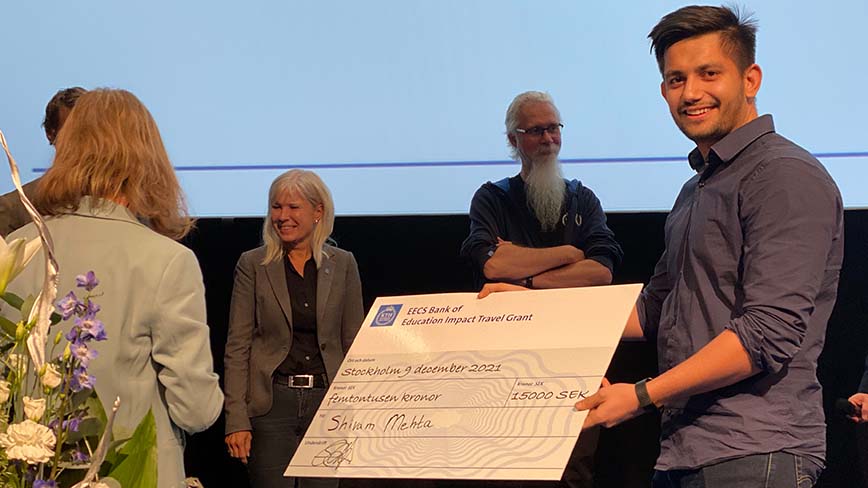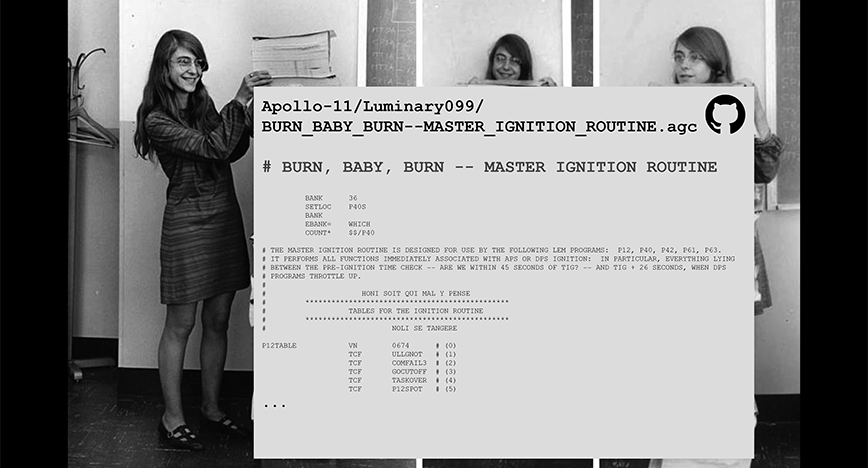Research on generating a faster iteration and a more personal voice for digital assistants
– gave Shivam Mehta a shared victory at the EECS Poster exhibition

Shivam Mehta, doctoral student at the Division of Speech, Music and Hearing, congratulations on winning the Poster exhibition at the EECS Winter Conference.
Shivam, How does it feel to receive this award?
What does it mean to you?
- My supervisor Gustav Eje Henter was also present when they announced the winners, and it was a great occasion for both of us. He was confident and passionate about our research. It was his confidence that made me thrive harder. When a year of hard work gets acknowledged, it means a lot, not only for me but for both of us.
Briefly, can you tell us a bit about your research?
- My research is to generate speech from speech homogeneous to what Alexa and Google assistant do (only the audio part). Still, the problem is currently to do it. We need a large amount of data, and we need to let energy-hungry GPU chunk that data for days, if not weeks. But my research focuses on improving that aspect without compromising the quality of the audio synthesised. It will be better for the environment and languages where we don’t have much data available, which we call low-resource languages. It also enables the text to be spoken slowly or quickly, allowing persons with reading problems to listen to the text at a pace that they can comprehend. For research, it helps to do our research iterations at a faster pace. We can try different experiments with different setups without waiting for days to see if we did something wrong in the first place.
What excites you the most about your area of research?
- Data-driven approaches are currently the crux of most technologies, and being a part of this field is already exciting enough. However, enabling these approaches that we humans have learned just a few years back into the challenging problems we humans have been facing for a few decades is what keeps this field of research more interesting.
How is your area of research interesting for a non-researcher and the future?
- We all use smart assistance, and my research is helpful for that assistance to be more personal with humans. Also, to give future researchers more utilities to enhance current technologies with faster iteration and less carbon footprint.
Have you any plans on how to spend your travel grant?
- The conference where we have submitted the research paper will be in Singapore. If covid permits, then I might spend it there. Otherwise, I will have to look at something else. The uncertainty might be high, but so is the excitement.
Related news

Re-appointed IEEE Distinguished Lecturer
For the second time, Carlo Fischione, professor at KTH, has been appointed IEEE Distinguished Lecturer by the IEEE Communications Society (ComSoc)—a prestigious recognition awarded to experts who have...
Read the article
Humour - a key ingredient in software development
Humour and cultural influences play an important role in most human relationships and, indeed, in software. Deepika Tiwari, a PhD student at KTH Royal Institute of Technology, discovered this when, to...
Read the article